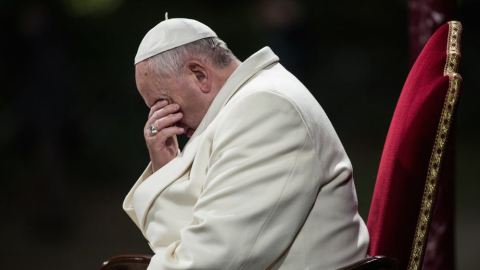Conservatives Prove Fair-Weather Friends of Faith

Mitt Romney appeared ready to champion his faith in a 2016 presidential bid, inspired by religion to alleviate poverty in America. But he dropped out, appearing to lack a certain conviction.
When Pope Francis called trickle-down theories of economics “crude and naive” in 2013, Paul Ryan, Romney’s former running mate and a Catholic, said of Francis: “The guy is from Argentina—they haven’t had real capitalism.”
The guy, as Ryan said, has been rankling conservative American politicians with his insistence on just economics. But there is an important intersection between religion and the market economy, both historically and theoretically, argues Harvard Business School Professor Clayton Christensen:
“If you don’t have an instinct, and genuinely born from a religious tradition, amongst the CEOs to voluntarily follow the rules, capitalism just doesn’t work. There is no way you can police honesty if it doesn’t come instinctively for you.”
Pope Francis also played a personal role in the negotiations to restore diplomatic relations between the US and Cuba. The deal was opposed by Jeb Bush, a Catholic, and Marco Rubio, an evangelical, but highlighted Francis’ belief that an international market economy can be a force for good in the world.
As Christensen explained, examining the ethical failures that produced the Great Recession does not condemn profit as a motive, but it does indict CEOs and investors who work for short-term profit ahead of true investment, which focuses on sustainability:
“In the 1960s, the average shareholder held the shares of your company in her portfolio for six years. Today, forty percent of the trading on the stock exchange is done by hedge funds whose holding period is sixty days. Fifty-five percent of the activity … is executed by mutual funds and pension funds whose average holding period is ten months. So ninety-five percent of the volume is executed by people who don’t even hold the shares of your company for a year. Do you want to call these people shareholders? They’re not! They’re speculators.”
Other ethical discussions entered into by the pope have upset those who traditionally count religious figures amongst their political allies. “It’s sometimes hard to listen to the pope,” echoed social conservative (and Catholic) Rick Santorum regarding Francis’ remarks that Catholics need not procreate as rabbits do.
The pope’s remarks on climate change, that we must collectively account for our mistreatment of nature, has also weakened the GOP’s political narrative that they are the party of God.
Read more at The New Yorker.
Photo credit: Shutterstock





